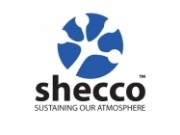Case studies from Dorin, GEA, University Braunschweig - Institute of Technology, Advansor and SCM Frigo will be presented at ATMOsphere Europe 2017 in Berlin, Germany.

The ATMOsphere Review Panel is pleased to announce the first round of case study selections for ATMOsphere Europe 2017 on 25-27 September in Berlin.
Dorin, GEA, University Braunschweig - Institute of Technology, Advansor and SCM Frigo will discuss their innovative natural refrigerant-based technologies at the conference.
A second round of case studies selected will be announced over the coming weeks.
Dorin | CO2 Against Ammonia: New Trends in the European Market by Giacomo Pisano
CO2 has been identified as one of the best alternatives to HFCs in many sectors, including commercial refrigeration. However, due to some lack of components, ammonia has been in so far the preferred choice for larger applications, even if it brings several drawbacks; in particular, actually available CO2 compressors displacements made it too expensive to compete with ammonia systems.
This work deals with and describes a performance and cost comparison for large systems (capacity of around 1.5 MW) made with ammonia and CO2. The systems layouts are described as well as the very many efficiency advantages which have been possible to achieve thanks to these new technologies deployment
GEA | Highly efficient ammonia heat pump installed in central London by Kenneth Hoffmann
In 2017, Islington Council has installed a 1000kW, two stage, high efficient, heat pump, which is turning the waste heat from a London underground ventilation shaft into useable heat for the areas high rise apartment block in an extension to a district heating network. For the current district heating network up to 80 degrees C hot water is required from the heat pump.
By using 2 stage piston compressors it has been possible to achieve heating COP above 3.5. This ensures significant local environmental benefit. As the project is next to a residential building the installation includes an ammonia absorber which filtrates the air from the emergency extract fan to ensure extract air is ammonia free. This was an essential part of the installation as more high-rise buildings are planned in the area.
University Braunschweig - Institute of Technology | Energy assessment of water loop systems for supermarket refrigeration by Nicolas Fidorra
Water loop systems with self-contained display cabinets are an alternative to centralized CO2 Booster refrigeration systems for supermarket. They allow higher flexibility for rearranging the display cabinets and little refrigerant charge inside the cabinets. This case study shows results from a simulation based systematic investigation of different water loop systems, using chiller, dry coolers and heat pumps for heat rejection or heat recovery. Furthermore, options to integrate cold thermal energy storages are looked at.
The utilization of different refrigerants in the display cabinets as well as in the chiller and heat pumps is assessed. The results are an energetic assessment of different concepts of water loop systems for supermarkets and indications which concept runs efficiently under certain climatic conditions.
Advansor | Small supermarkets with CO2 remote systems – Minibooster by Kim G Christensen
During the last 10 years CO2 as refrigerant has been evolving from test studies to mainstream usage in supermarkets. However, when medium and large size supermarkets have already adapted the technology since years, smaller stores below 800 m2 have been a challenge mainly due to price and complexity. Now, when the rules of the F-gas directive move closer, also these smaller stores must make up their minds and go for natural refrigerants.
So far, due to cost, the main choice has been plug-in or semi-plug-in solutions for small stores and solutions with CO2 has been the second choice. This priority will change in the coming years due to better performance-cost ratio of a newly developed CO2 system (Minibooster) for this segment. This case study explains the story about a big discounter converting directly from R404A systems to CO2. The conversion to CO2 brought significant energy savings and reduced cost of ownership, but also increased quality of the installations. Finally, the challenge on education and training will covered and the extensive program used in this project will be explained.
SCM Frigo | CUBO2 SMART CO2 condensing units
